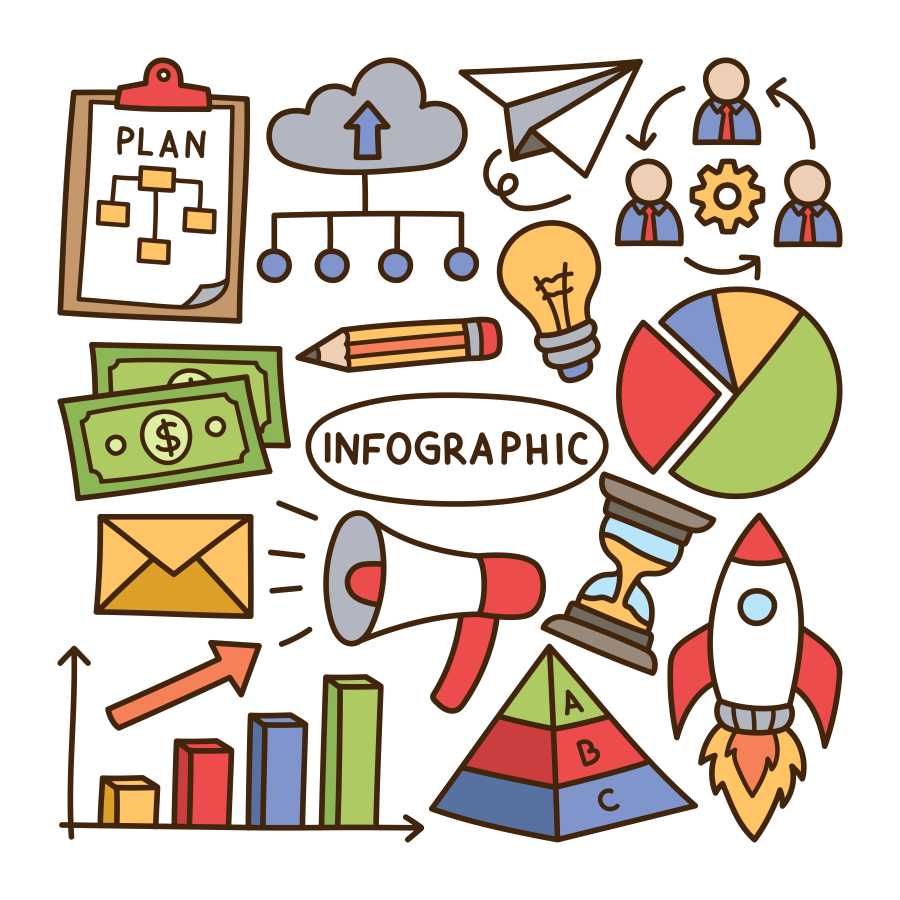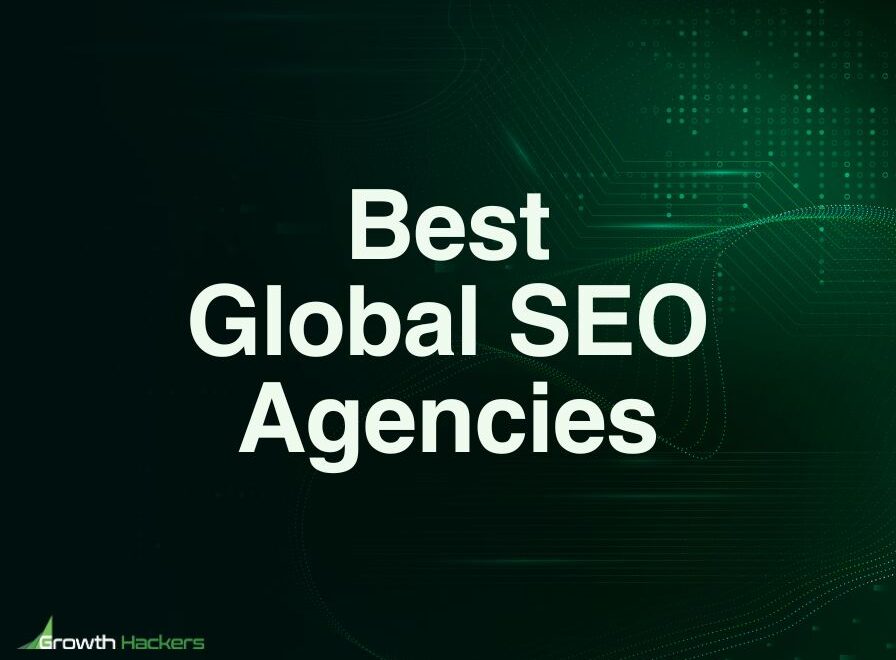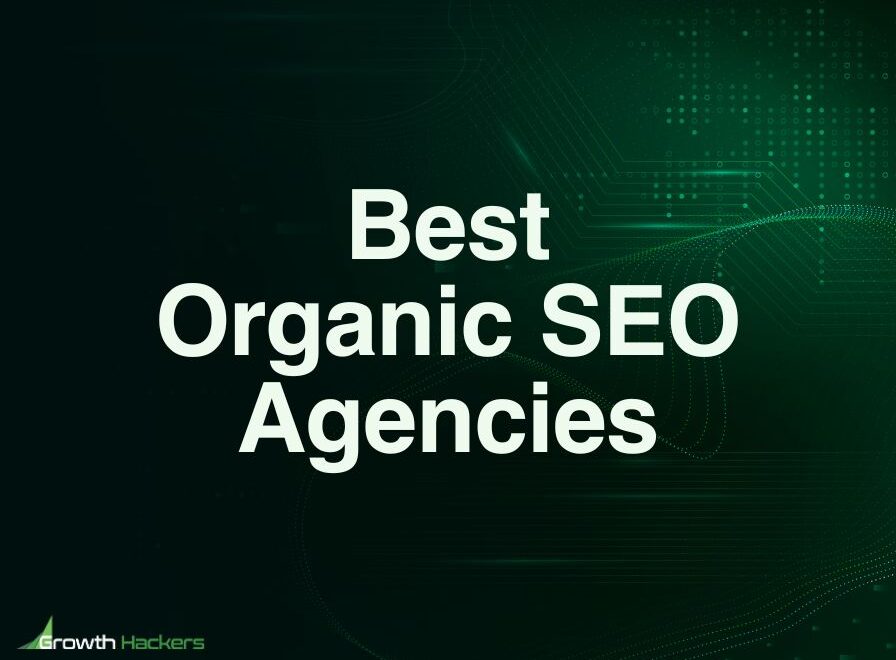Content marketing has evolved into a multifaceted landscape that demands a diverse array of content types to engage audiences effectively. The best content marketing agencies understand this dynamic ecosystem and craft comprehensive strategies integrating various content forms to maximize impact and reach.
In this blog post, we’ll explore the primary content types that these experts excel in producing, encompassing web design, content marketing, visuals, copywriting, video marketing, blogging, SEO, social media management, email marketing, influencer marketing, keyword research, and link building.
The Main Types of Content Produced by Content Marketing Agencies
1. Blog Posts
In content marketing strategies, blog posts stand as the foundation. They deliver valuable, informative, and SEO-rich content tailored to audience interests. Professionals prioritize keyword optimization, compelling copywriting, and engaging visuals to bolster search engine rankings and drive organic traffic. Captivating narratives and persuasive copywriting techniques are integral to capturing reader attention and encouraging interaction through comments or shares.
Content marketing agencies ensure optimal blog layout, readability, and mobile responsiveness to enhance the user experience. They put emphasis on incorporating visuals such as images or infographics because they enrich content engagement and aid in effectively conveying complex information.
2. Video Content
Video content represents various formats that engage audiences both visually and aurally within content marketing strategies. Explainer videos, product demos, vlogs, interviews, and animations offer diverse approaches to capture viewer interest. Experts ensure these videos are optimized for seamless integration into websites, ensuring compatibility across different devices for a consistent user experience.
Professionals focus on optimizing video content using relevant keywords and tags to improve search engine rankings and enhance discoverability. They focus on the strategic sharing of video content across social platforms to amplify reach and engagement, leveraging the visual appeal to captivate audiences effectively.
3. Infographics
Infographics serve as visually appealing representations of complex information, aiding comprehension and shareability within content marketing. Agencies design these visuals to complement blog posts or social media content, ensuring they align with content themes for enhanced engagement and understanding.
Infographics often include SEO-friendly descriptions and alt text for better search engine visibility. They’re also formatted for optimal display across web platforms to ensure readability and visual appeal.
4. Podcasts
Podcasts offer auditory content discussing industry insights, interviews, or educational topics within marketing strategies. Professionals focus on engaging storytelling and optimizing titles, descriptions, and transcripts for improved discoverability in search engines.
Snippets or excerpts from podcasts are shared on social platforms to generate interest and drive traffic. Podcast episodes or highlights are also featured in newsletters, encouraging subscribers to listen and engage.
5. E-books/Guides
E-books and comprehensive guides serve as valuable lead magnets, providing in-depth information on specific subjects within content marketing. Content professionals optimize these resources for SEO, attracting organic traffic and nurturing leads through detailed content.
Segments or excerpts from e-books/guides can be featured in newsletters, enticing subscribers to access comprehensive content. Also, churning out detailed guides establishes brand authority and credibility within respective industries.
6. Case Studies/Testimonials
Case studies and testimonials showcase real success stories, reinforcing credibility and proof of concept within content marketing. Content agencies employ persuasive storytelling techniques to highlight problem-solving capabilities and engage potential customers.
Optimized case study descriptions and testimonials enhance search engine visibility. Posting authentic stories can engage potential customers, providing social proof and building trust.
Looking to partner with one of the top content marketing agencies to elevate your brand?
Contact Growth Hackers
7. Webinars
Webinars, whether live or recorded, offer educational content on niche topics, engaging audiences within content marketing strategies. Marketing companies optimize webinar content for increased visibility through SEO strategies and promote them through social media and email marketing for audience engagement.
Teasers or highlights from webinars can be shared on social channels to attract participants. Webinars can also be promoted through newsletters, encouraging sign-ups, and lead generation.
8. Social Media Posts
Social media posts encompass various content types tailored for different platforms within content marketing strategies. Agencies curate engaging visuals and interactive content to enhance user engagement and shareability across social platforms.
While not directly impacting SEO, social media engagement indirectly influences brand visibility and online presence. Plus, collaborations with influencers for social media campaigns help expand brand reach and credibility.
9. Email Newsletters
Email newsletters provide direct updates, promotions, or curated content to subscribers’ inboxes within content marketing strategies. Marketing experts curate valuable content to maintain subscriber interest and engagement, nurturing leads through targeted and personalized content.
10. Whitepapers/Research Papers
Whitepapers and research papers offer in-depth reports and industry insights, establishing brand authority within content marketing strategies. These authoritative documents are optimized for SEO, attracting industry-specific traffic and showcasing expertise.
In-depth reports serve as lead magnets, attracting prospects interested in industry-specific content. Excerpts or highlights from whitepapers can be featured in newsletters, driving traffic to authoritative content.
11. Live Q&A Sessions
Live Q&A sessions facilitate real-time engagement, addressing audience queries and concerns within content marketing strategies. Session topics are made SEO-friendly, improving search visibility, and leveraging social media to announce and amplify participation.
Announcements and teasers about live sessions increase anticipation and participation. When the session is on, active interaction fosters community engagement and builds brand trust through direct communication.
12. Product Demos/Tutorials
Tutorials and product demos provide instructional content showcasing product use or specific tasks within content marketing strategies. Tutorials are optimized and integrated into websites for enhanced user experience.
Posting demo videos on websites enhances user experience and product understanding. Plus, snippets or highlights from demos can also be shared on social platforms to promote products.
13. Behind-the-Scenes Content
Behind-the-scenes content offers insights into company culture, processes, and team activities within content marketing strategies. Agencies leverage storytelling to humanize brands, foster emotional connections with audiences, and share these insights across social media platforms for authenticity.
14. User-Generated Content (UGC)
User-generated content is a powerful asset within content marketing strategies. It involves audiences in brand storytelling, showcasing authentic experiences and testimonials. Leveraging UGC fosters community engagement, building trust, and serving as social proof of a brand’s value. Involving users in content creation strengthens community bonds and encourages brand advocacy.
15. Interactive Stories
Interactive stories utilize features like Instagram or Facebook to create engaging narratives within content marketing strategies. These stories boost brand visibility, enhance audience interaction, and leverage influencer collaborations for broader reach.
16. Micro-content/Snackable Content
Micro-content comprises bite-sized pieces like short videos, quick tips, or mini-infographics within content marketing strategies. Marketing professionals create these concise and impactful snippets for increased engagement and shareability across social platforms. Visual micro-content also aids in brand recall and engagement due to its concise and impactful nature.
17. Industry News
Industry news serves as a cornerstone in content marketing strategies, providing timely and insightful updates. It delivers current trends and developments, showcasing agencies’ expertise and relevance. Sharing news on social platforms sparks engagement, solidifying the brand as an authority. Tailoring news in varied formats educates and connects with audiences, establishing relevance and credibility.
18. GIFs/Memes
GIFs and memes add a touch of humor and relatability to content marketing strategies. They engage audiences with entertaining visuals and concise messaging, often enhancing brand memorability. Integrating these elements into content humanizes the brand, fostering connections and encouraging social sharing.
GIFs and memes entertain, enhancing audience engagement and increasing brand recall. Sharing humorous or relatable content encourages user interaction and strengthens brand affinity.
Power up your presence – partner with one of the best content marketing companies today!
Why Use Different Types of Content
Employing various types of content is instrumental in content marketing due to the diverse preferences and behaviors of audiences. Here’s why utilizing different content types is crucial:
- Catering to Diverse Audiences: Different people consume content in various ways. Some prefer reading long-form articles, while others engage better with videos or visuals. Offering a mix ensures that you resonate with a broader audience, meeting their preferences and increasing engagement.
- Enhancing Engagement and Interaction: Variety in content keeps the audience engaged. Infographics, videos, podcasts, and interactive content provide a break from monotony and encourage interaction, leading to higher shares, comments, and overall engagement.
- Addressing Different Stages of the Buyer’s Journey: Different content types cater to distinct stages of the buyer’s journey. For instance, educational blog posts might appeal to those in the awareness stage, while case studies or product demos might suit those in the consideration or decision stage.
- Optimizing for Different Platforms: Each platform has its preferred content type. While Instagram might favor visual content like images or short videos, LinkedIn might be more receptive to long-form articles or professional content. Tailoring content types to platforms maximizes reach and engagement.
- Diversifying Communication Channels: Employing diverse content types allows for communication through multiple channels. Email newsletters, social media posts, blogs, and podcasts offer varied touchpoints to engage with the audience, strengthening brand presence across platforms.
- Boosting SEO and Visibility: Different content types contribute to diverse SEO strategies. Videos enhance time spent on-site, infographics attract backlinks, and long-form articles improve keyword relevance. This diversity positively impacts search engine rankings and visibility.
- Encouraging Repeat Visits and Loyalty: Consistently offering new, diverse content keeps audiences returning. It builds anticipation and loyalty, as audiences expect fresh, valuable content in various formats.
- Adapting to Changing Trends and Preferences: Audience preferences evolve over time. By diversifying content types, brands can adapt quickly to changing trends and stay relevant in the dynamic digital landscape.
Utilizing various content types within a content marketing strategy offers flexibility, enhances engagement, and effectively communicates messages to a wider and more varied audience, contributing to overall success and brand growth.
Why Content Marketing Is Important?
- Building Trust and Credibility: Content marketing allows businesses to demonstrate their expertise, knowledge, and authority in their industry. By consistently delivering valuable and relevant content, brands establish themselves as trustworthy sources. This trust is fundamental in converting leads into customers and retaining existing ones.
- Audience Engagement and Relationship Building: Engaging content fosters meaningful connections with the audience. It’s not just about selling but also about providing value, answering queries, and addressing pain points. This engagement builds relationships, creating a loyal customer base that advocates for the brand.
- Enhancing Brand Visibility and Awareness: High-quality content distributed across various platforms increases brand visibility. It ensures that the brand stays top-of-mind when consumers seek information or solutions related to their industry. Strong visibility contributes to brand recall and preference.
- Driving Organic Traffic and SEO Benefits: Content creation, particularly optimized content, plays a vital role in search engine rankings. Search engines favor valuable, relevant, and fresh content. Effective use of keywords, quality backlinks, and user-friendly content can significantly improve organic search visibility.
- Supporting the Buyer’s Journey: Tailoring content to different stages of the buyer’s journey—awareness, consideration, and decision—guides potential customers through the purchasing process. Providing relevant information at each stage nurtures leads and assists in their conversion.
- Cost-effectiveness and ROI: Compared to traditional marketing methods, content marketing often yields a higher return on investment. While it requires time and effort to produce quality content, it continues to drive results and engagement over time without constant monetary investments.
- Adaptability and Longevity: Content remains accessible and valuable long after it’s published. Evergreen content, especially, continues to attract traffic and engagement. Additionally, content can be repurposed across various formats and platforms, increasing its longevity and reach.
- Measurability and Insights: Content marketing offers valuable insights through analytics. Metrics like engagement rates, click-through rates, and conversion rates provide actionable data. This allows businesses to refine their strategies based on audience behavior and preferences.
Ultimately, content marketing is more than just creating content; it’s about delivering value, establishing relationships, and driving profitable customer action. It’s a foundational element in today’s digital landscape for brands aiming to thrive in the competitive market.
The Risk of Not Hiring a Content Marketing Agency
- Missed Audience Engagement: Without a dedicated content strategy, reaching and engaging your target audience becomes challenging. This could lead to decreased brand visibility, reduced audience interaction, and missed opportunities to connect with potential customers.
- Decreased Brand Authority: In a competitive landscape, consistent and high-quality content helps establish brand authority and credibility. A lack of investment in content marketing might result in a weaker brand perception compared to competitors who actively engage their audiences with valuable content.
- Limited Online Presence and Visibility: Content serves as a key driver for SEO. Inadequate content means missed opportunities to rank higher on search engines, resulting in reduced organic traffic and online visibility.
- Inconsistent Messaging: Without a content strategy, your brand messaging might lack consistency. Inconsistent messaging can confuse potential customers and weaken brand recall and recognition.
- Loss of Competitive Edge: Competitors investing in content marketing may gain a competitive edge. They may effectively engage audiences, rank higher on search engines, and establish a stronger brand presence, potentially outperforming businesses with limited content strategies.
- Difficulty in Lead Generation and Conversion: Content is crucial throughout the buyer’s journey. Insufficient content might result in difficulties in lead generation, nurturing prospects, and converting leads into customers.
- Ineffective Use of Resources: In-house content creation without expertise or a structured strategy may result in wasted resources. Poorly executed content might not yield the desired results, leading to a waste of time and effort.
Neglecting content marketing or not engaging a specialized agency can limit your company’s ability to reach its target audience effectively, weaken brand presence, and miss out on opportunities for growth and success in the digital landscape.
Final Thoughts on The Types of Content Produced by the Best Content Marketing Agencies
Content marketing agencies create a wide variety of content to engage audiences, such as blog posts, videos, infographics, podcasts, e-books/guides, case studies/testimonials, webinars, social media posts, email newsletters, whitepapers/research papers, live Q&A sessions, product demos/tutorials, behind-the-scenes content, interactive stories micro-content/snackable content, industry news GIFs/memes and user-generated content (UGC).
A successful strategy encompasses diverse content types tailored to engage, inform, and connect with audiences. From blog posts and videos to industry news and user-generated content, a comprehensive approach is vital for brand growth and audience engagement. Different types of content are used to cater to diverse audiences’ preferences and behaviors in the buyer’s journey and optimize for different platforms.
The risks of not hiring a content marketing agency include missed audience engagement; decreased brand authority; limited online presence & visibility; and inconsistent messaging. So, why not just get the services of a content marketing agency, right?
If you’re looking to partner with a content marketing agency to grow your business, then there’s no better choice than Growth Hackers.
Growth Hackers is a reputable content marketing company and we don’t settle; we innovate. Utilizing unique, cutting-edge growth strategies developed in-house, we unlock the growth potential of companies. Our collaborative approach ensures alignment with your business goals, be it lead generation, traffic optimization, sales increase, brand strengthening, or user acquisition. The endgame? A scalable solution accelerating revenue growth.
Our dedication to delivering tangible results places us at the pinnacle of content marketing agencies. With a focus on innovation, tailored strategies, and a track record of success, we’re the go-to choice for businesses seeking transformative content marketing solutions.
Unlock your company’s growth potential with Growth Hackers. Contact Growth Hackers today and experience content marketing that drives real results and propels your brand toward unprecedented success.











